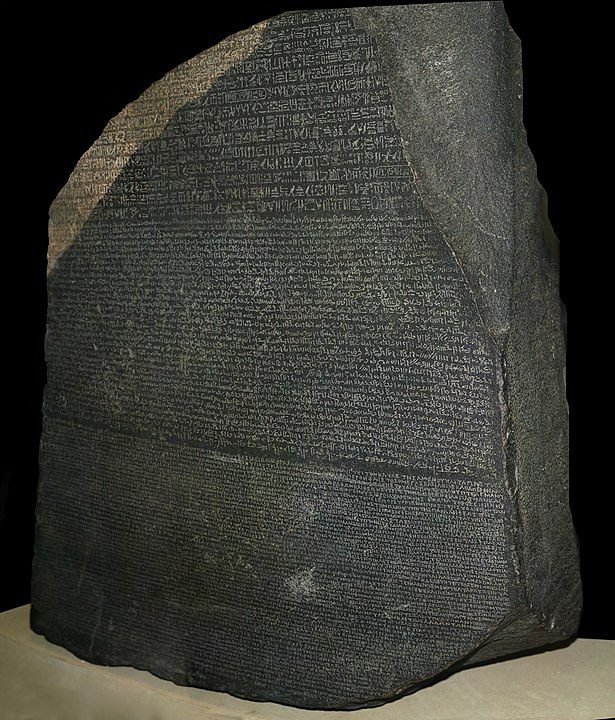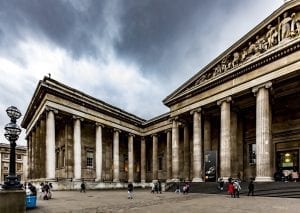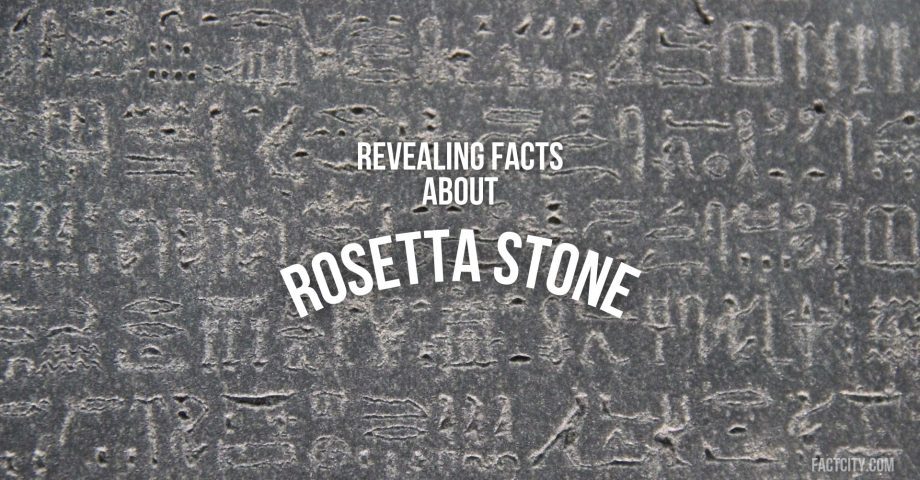We have all heard about Rosetta Stone and maybe even how useful it is for us to learn languages! But, before all that, the Rosetta Stone was one of the most useful and famous artifacts in the world. Here are some fun facts about the Rosetta Stone.
1. It was a deciphering tool.
The Rosetta Stone is a famous artifact that’s helped us decipher ancient Egyptian hieroglyphs – it’s massively significant from a historical standpoint. The stone features a trilingual inscription, with the same text written in three scripts: Ancient Greek, Demotic, and hieroglyphs.
2. It was discovered in Rosetta, funnily enough!
As the name suggests, the stone is from Rosetta. It was discovered in the town of Rosetta (modern-day Rashid) in Egypt in 1799 during Napoleon Bonaparte’s campaign in Egypt.
3. It is thousands of years old.
The stone was created in 196 BC during the reign of King Ptolemy V as a decree to honour him for his generosity and various accomplishments.

4. It was key in breaking down Egyptian text.
Hieroglyphs were an ancient Egyptian script primarily used for religious and monumental inscriptions. They had become undecipherable by the time the Rosetta Stone was created, which is why the stone was so useful. The Rosetta Stone was key in deciphering hieroglyphs by allowing scholars to compare the known text in Greek with the unknown hieroglyphic and Demotic texts.
5. The hieroglyphs were deciphered by Jean-François Champollion.
Jean-François Champollion, a French scholar, was credited with successfully deciphering hieroglyphs using the Rosetta Stone and other sources. It was originally stolen by a French officer named Pierre-François Bouchard, who recognised its historical importance and value.
6. The British took the stone!
Following Napoleon’s defeat and that of his forces in Egypt, the British claimed the Rosetta Stone as their property. This was made official as part of the Treaty of Alexandria in 1801 – they legally had the rights to it!
7. It remains in Britain to this day.
If you would like to see the Rosetta Stone, you will be glad to know it is on display. You can find it at the British Museum in London, where it has officially resided since 1802, and it remains one of its most famous and visited exhibits to this day. However, the British Museum’s possession of the Rosetta Stone has sparked controversy, as many have called for its return to Egypt.
8. It has been well-protected over the years.
As you can imagine, people have long done their best to protect and conserve the stone. In fact, in recent years, the British Museum has worked tirelessly to protect and conserve the stone, including by placing it in a humidity-controlled case.
9. There are digital replicas.
Thankfully, you do not need to travel to the UK to see the stone. High-resolution digital replicas of the Rosetta Stone are available online, allowing scholars and the public to examine it more closely.
10. It has become a genuine polyglot’s icon.
The Rosetta Stone has become a symbol of the study of languages and multilingualism, reflecting the importance of deciphering ancient scripts. In fact, it has featured in various books and documentaries and even inspired the name of the language-learning company Rosetta Stone, which, as mentioned above, offers language-learning software.

FAQs about the Rosetta Stone
What exactly does the Rosetta Stone say?
Certain researchers have found that the stone contains a message noting a decree that says priests of a temple support the reign of Ptolemy V, on the very first anniversary of his coronation. It's amazing that we've been able to break down the ancient language transcribed!
Do Egyptians want the Rosetta Stone back?
Yes, many Egyptians want the Rosetta Stone back and have openly called for its repatriation, along with certain other items. The fact it remains housed in the British Museum proves highly controversial – while people get to see and access the artifact, it technically hails from Northern Africa. Many believe it should be sent home.
Was the Rosetta Stone ever in the Louvre?
Yes, the Rosetta Stone was in the Louvre Museum in Paris for a short period in 1972.
Further reading:
https://facts.uk/tag/Ancient-Egypt
https://www.britishmuseum.org/blog/everything-you-ever-wanted-know-about-rosetta-stone
https://www.britannica.com/topic/Rosetta-Stone
Do you know any interesting facts about the Rosetta Stone? Share them in the comments below!










